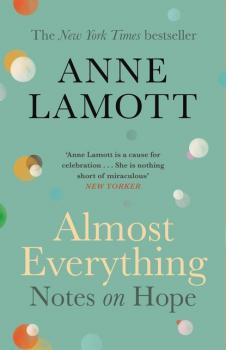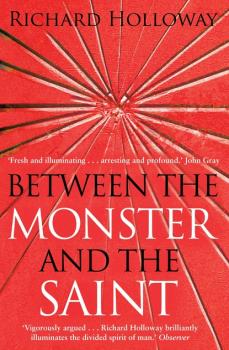ТОП просматриваемых книг сайта:
Философия
Различные книги в жанре Философия, доступные для чтения и скачиванияАннотация
As it was in Anna Karenina, Madame Bovary, and Othello, so it is in life. Most forms of private vice and public evil are kindled and sustained by lies. Acts of adultery and other personal betrayals, financial fraud, government corruption—even murder and genocide—generally require an additional moral defect: a willingness to lie.In Lying, best-selling author and neuroscientist Sam Harris argues that we can radically simplify our lives and improve society by merely telling the truth in situations where others often lie. He focuses on «white» lies—those lies we tell for the purpose of sparing people discomfort—for these are the lies that most often tempt us. And they tend to be the only lies that good people tell while imagining that they are being good in the process.
Аннотация
Эссе о литературной деятельности с медицинской точки зрения. Эссе вошло в новый сборник автора "Восстание слов".
Аннотация
Мы всегда думаем, что понимаем, при этом обходя стороной вопрос о том, что значит понимать и быть понятым. Что значит думать? Что значит осознавать? Как выявить проявление актов понимания? Понимать, думать, что понимаешь, мыслить, осознавать факт наличия осознания суть разные вещи в акте понимания того, что все эти процессы из себя представляют. Со всей ответственностью можно заявить, что в этой книге нет того, что "вам необходимо"; готовых ответов на вопросы, "что такое мозг", как он "работает" и "работает ли вообще", "правильно" ли мы воспринимаем "окружающий мир" и "нас в нем". Нет и того, как "найти самого себя в этой жизни", "что необходимо", будет ли это "вам интересно или нет"…, она вообще не то, что "можно" о ней "думать". Это произведение не будет льстить вашему самомнению или ожиданиям быстро открыть для себя знание, которым не обладают другие, в ней есть лишь то, что можно взять себе "на вооружение" для акта собственного рассуждения о вещах, вас интересующих, не более того.
Аннотация
Martin Buber's I AND THOU has long been acclaimed as a classic. Many prominent philosophers, religious thinkers and writers have acknowledged its influence on their works. Students of intellectual history consider it a landmark; and the generation born since WWII considers Buber as one of its prophets.
Аннотация
Personal growth is a slow process, so slow that most people are unaware of the fact that, fundamentally, we do change several times during our lives. On the Way is about these personal transformations. It describes how growth of consciousness happens and how we can measure where we are in our individual growth, what comes next for us, and why. It illustrates how, at all levels of development, we can learn to guide our own growth.<br><br>Individual consciousness grows through five distinct phases. The first is the consciousness of young children and of primitive adults. Here people trust their instincts more than their feelings or their rational objectivity. In the second phase of consciousness, typical of the teenager, feelings take precedence over instincts and objectivity. This changes in the third phase when instincts and emotions become less than trustworthy, and objectivity and rationality take over as the most reliable sources of awareness. Yet there is a fourth phase of consciousness where even objective, rational thinking no longer appears trustworthy. Then intuition becomes the most reliable form of information. This is the consciousness of the spiritual seeker. To very few a sudden flash of insight happens resulting in a final, fifth phase of consciousness: Enlightenment.<br><br>The book consists of three parts. The first is about how consciousness grows through the first three phases. The second deals with the various paths of spiritual seekers. And the third focuses on which spiritual practice can be expected to be most effective for whom.
Аннотация
In her fourth book, Lillian Moats constructs an astonishing appraisal of humanity through the eyes of Death itself. As an insightful, philosophical and witty narrator, Death takes a tour through the follies of human past, present and future to approach seemingly complex matters with startling directness.<br><br>Full of intelligent humour and deep insights, this book will engage and enlighten as it offers new perspectives on religion, militarism and the contradictions between human desires and actions. By drawing a connection between our unexamined fear of death and our unnecessary pursuit of war, Moats challenges readers to question whether humans are really violent warmongers by nature, or do we yearn to protect life? David J Moats' haunting and powerful illustrations will leave the issues burning in your mind. The book is introduced with a foreword by Howard Zinn, the renowned historian, activist, playwright and author of A People's History of the United States.<br><br>At once unsettling and comforting, tragic and comic, provocative and wise, The Letter from Death is an insightful examination of humanity that will give thoughtful readers a lot to think about.
Аннотация
Who Am I? Why Am I Here? What Is Reality Really All About?<br><br>Throughout mankind's history, our perceptive reality has led us to question who, what, and why we are here. What is this universe we perceive around us? These questions have been the driving force of our survival and have contributed to the evolution and proliferation of man's existence. <br><br>While there have been many disciplines of thought which have attempted to answer these questions, the truth seems to elude us, thereby indicating a lack of satisfactory answers from all our religions, philosophies, mythologies, and sciences. <br><br>Ironically, we do in fact have enough knowledge, experience, and information to discover, define, and comprehend the true nature of our existence, as well as our individual roles in it. To realize this requires the willingness to see things at their most basic level, and recognize that what we find there provides us the evidence to understand the foundation of all that exists. <br><br>For thousands of years, theologians, philosophers, and scientists have monopolized the question of "what is reality?" Now it's a topic for the rest of us. <br><br>Anyone sufficiently motivated to ask themselves questions such as "Who am I? Why am I here? What is this existence really all about?" already has the inherent ability and the direct evidence to find the answers. <br><br>It is often said that truth can be stranger then fiction. No where is this more true then in the pages of this eBook.
Logically Fallacious: The Ultimate Collection of Over 300 Logical Fallacies (Academic Edition) - Bo Bennett PhD
Аннотация
This book is a crash course in effective reasoning, meant to catapult you into a world where you start to see things how they really are, not how you think they are. The focus of this book is on logical fallacies, which loosely defined, are simply errors in reasoning. With the reading of each page, you can make significant improvements in the way you reason and make decisions.<br><br>Logically Fallacious is one of the most comprehensive collections of logical fallacies with all original examples and easy to understand descriptions, perfect for educators, debaters, or anyone who wants to improve his or her reasoning skills.<br><br>"Expose an irrational belief, keep a person rational for a day. Expose irrational thinking, keep a person rational for a lifetime." – Bo Bennett<br><br>This 2017 Edition includes dozens of more logical fallacies, over a hundred cognitive biases, practice lessons, and some common questions and answers.
Аннотация
Despair and uncertainty surround us: in the news, in our families, and in ourselves. But even when life is at its bleakest, Anne Lamott shows how we can rediscover the hope and wisdom that are buried within us and that can make life sweeter than we ever imagined. Divided into short chapters that explore life's essential truths, Almost Everything pinpoints these moments of insight and, with warmth and humour, offers a path forward.










